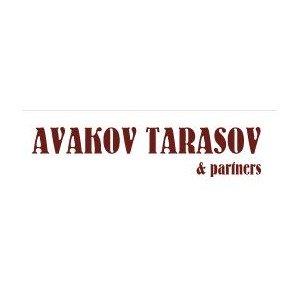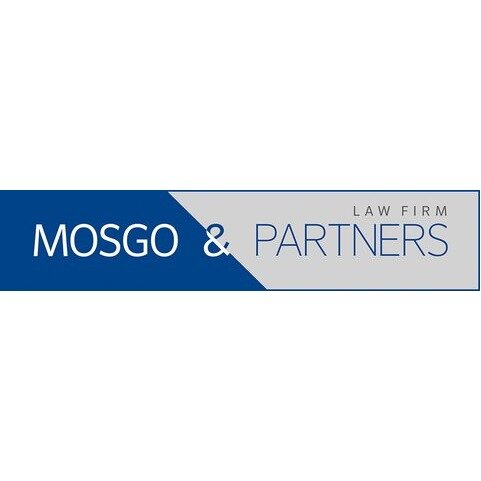Best Corporate Governance Lawyers in Moscow
Share your needs with us, get contacted by law firms.
Free. Takes 2 min.
List of the best lawyers in Moscow, Russia
About Corporate Governance Law in Moscow, Russia
Corporate governance in Moscow, Russia refers to the system of rules, practices, and processes by which companies are directed and controlled. It balances the interests of a company’s stakeholders, such as shareholders, management, customers, suppliers, financiers, government, and the community. In Russia, and especially in Moscow where many major corporations are headquartered, corporate governance is regulated by a combination of federal laws, government regulations, the company’s charter, and stock exchange listing requirements. Russian corporate governance strives to incorporate international best practices while reflecting local legal, economic, and cultural realities.
Why You May Need a Lawyer
Individuals and businesses may need legal help with corporate governance in the following situations:
- Establishing a public or private company in Moscow and drafting corporate charters, bylaws, and shareholder agreements.
- Navigating the rights and responsibilities of shareholders, directors, and management under Russian law.
- Ensuring compliance with Russian federal and local corporate governance requirements.
- Resolving internal disputes, such as those between shareholders or between shareholders and directors.
- Assisting with mergers, acquisitions, reorganizations, or other significant business transactions.
- Representing the company or individuals in investigations or enforcement actions by regulators.
- Advising on disclosure requirements and reporting obligations for public companies.
- Managing conflicts of interest and ensuring ethical conduct among company leaders.
- Implementing anti-corruption measures and corporate ethics policies as required by law.
- Protecting the interests of minority shareholders in governance matters.
Local Laws Overview
Corporate governance in Moscow is primarily governed by federal laws, but Moscow’s status as the business heart of Russia means local regulators and market practices also play a significant role. Key aspects of the local legal framework include:
- Civil Code of the Russian Federation: Serves as the foundation for corporate law and regulates legal entities, including joint-stock and limited liability companies.
- Federal Law No. 208-FZ "On Joint-Stock Companies": Governs joint-stock companies, shareholder rights, management bodies, and board structures.
- Federal Law No. 14-FZ "On Limited Liability Companies": Applies to limited liability companies, which are a common form of business entity in Moscow.
- Listing Regulations of the Moscow Exchange: Apply to publicly traded companies, including disclosure and reporting obligations.
- Corporate Governance Code (recommended by the Central Bank of Russia): Outlines best practices for governance, including board composition, transparency, risk management, and protection of shareholder rights.
- Anti-Corruption Laws: Russian legislation sets strict requirements for anti-corruption measures, internal controls, and compliance programs.
Failure to comply with these laws can result in administrative penalties, loss of reputation, or even criminal liability for the company and its executives.
Frequently Asked Questions
What is the primary law regulating corporate governance in Moscow?
The main laws are the Civil Code, Federal Law No. 208-FZ for joint-stock companies, and Federal Law No. 14-FZ for limited liability companies. Public companies must also follow Moscow Exchange regulations and the recommended Corporate Governance Code.
Are companies in Moscow required to have a board of directors?
Joint-stock companies must have a board of directors. Limited liability companies can choose to have a board, but it is not mandatory unless specified in the company’s charter.
What rights do minority shareholders have in Russian companies?
Minority shareholders have legal protections such as the right to access information, attend general meetings, vote on significant issues, and, in some cases, demand the buyback of their shares if they disagree with major corporate decisions.
What are the disclosure requirements for public companies in Moscow?
Public companies must disclose financial reports, material events, information about significant shareholders, board decisions, and other data as required by law and stock exchange rules.
How can companies prevent conflicts of interest on the board?
Establishing clear company policies, requiring board members to disclose personal interests, conducting independent board committee work, and following the Corporate Governance Code help reduce conflicts of interest.
How are disputes between shareholders typically resolved?
Disputes can be resolved through internal company procedures, mediation, or litigation in Russian commercial courts. Many companies include arbitration clauses in their shareholder agreements.
What penalties exist for violating corporate governance laws?
Penalties can include administrative fines, disqualification of company officers, suspension of activities, and criminal liability in cases of fraud or significant harm.
What are the requirements for board meetings and decision making?
Laws specify the frequency of meetings, quorum requirements, and how decisions are recorded. Company bylaws can establish additional rules as long as they meet minimum legal standards.
Are foreign shareholders subject to specific restrictions in Russian corporate governance?
Foreign shareholders generally have the same rights as Russian citizens, but certain industries have restrictions on foreign ownership or require government approval.
How can a company in Moscow improve its governance practices?
Adopting the recommendations of the Corporate Governance Code, ensuring transparency, appointing independent directors, conducting regular audits, and providing ongoing training for management can all strengthen governance.
Additional Resources
Individuals or companies seeking legal advice on corporate governance in Moscow, Russia may find the following resources helpful:
- The Central Bank of Russia - Regulator for financial markets and publisher of the Corporate Governance Code.
- The Moscow Exchange - Provides guidance and regulations for listed companies.
- Federal Tax Service of Russia - Handles business registration and corporate compliance.
- Court of Arbitration of Moscow - Resolves commercial disputes, including those involving corporate governance.
- Russian Union of Industrialists and Entrepreneurs - Offers policy advocacy and resources on corporate practices.
- Professional associations of corporate lawyers and consultants - Useful for finding qualified legal experts in Moscow.
Next Steps
If you believe you need legal assistance related to corporate governance in Moscow, consider the following actions:
- Gather all relevant business documentation, including your company charter, bylaws, board resolutions, and shareholder agreements.
- Clearly identify the issue or concern you are facing, such as needing to amend corporate documents, resolve a shareholder dispute, or ensure compliance with local laws.
- Research or seek recommendations for qualified corporate lawyers experienced with Moscow and Russian corporate law.
- Schedule an initial consultation to discuss your situation and obtain a legal assessment.
- Work with your lawyer to develop a practical solution, whether that involves drafting documentation, negotiation, or litigation.
- Stay informed about ongoing legal obligations and best practices to ensure your company remains compliant and well-governed.
Taking prompt and informed action with the help of a qualified lawyer can help safeguard your business interests and ensure compliance with complex corporate governance laws in Moscow, Russia.
Lawzana helps you find the best lawyers and law firms in Moscow through a curated and pre-screened list of qualified legal professionals. Our platform offers rankings and detailed profiles of attorneys and law firms, allowing you to compare based on practice areas, including Corporate Governance, experience, and client feedback.
Each profile includes a description of the firm's areas of practice, client reviews, team members and partners, year of establishment, spoken languages, office locations, contact information, social media presence, and any published articles or resources. Most firms on our platform speak English and are experienced in both local and international legal matters.
Get a quote from top-rated law firms in Moscow, Russia — quickly, securely, and without unnecessary hassle.
Disclaimer:
The information provided on this page is for general informational purposes only and does not constitute legal advice. While we strive to ensure the accuracy and relevance of the content, legal information may change over time, and interpretations of the law can vary. You should always consult with a qualified legal professional for advice specific to your situation.
We disclaim all liability for actions taken or not taken based on the content of this page. If you believe any information is incorrect or outdated, please contact us, and we will review and update it where appropriate.















